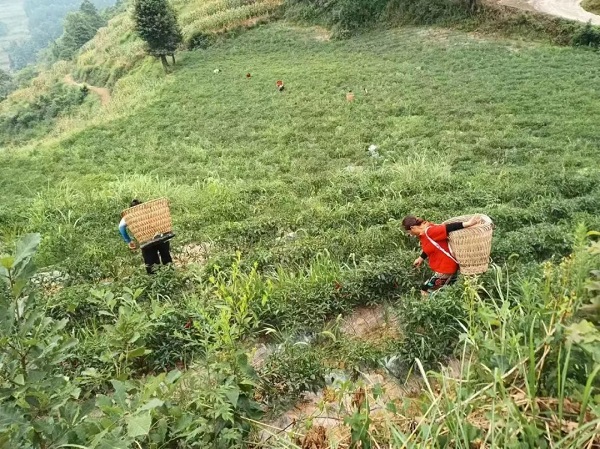Jinlong village: A blend of heritage and modern prosperity

Jinlong village encourages farmers to plant high-value crops. [Photo/WeChat account of Kaiyang county media center]
Jinlong village, located south of Fengsan town, Guiyang, capital of Southwest China's Guizhou province, is steeped in history and unique culture. Its origins date back to the Ming and Qing dynasties, when early settlers established farming communities in the area.
In recent years, Jinlong has explored new pathways for industrial development. Utilizing local conditions, villagers have embraced high-value crops like chilies and yellow peaches, with large-scale growers leasing 600 mu (40 hectares) of land to boost production.
In March 2024, the village launched a "1+1" chili plantation base, partnering with processing plants to extend the supply chain and increase product value. It is expected to raise cooperative income by 16,000 yuan ($2,228) this year.
The village's pig farming industry, led by Fulin Farm and Guizhou Maoyuan Agricultural Co, is also flourishing. These enterprises prioritize scientific management and disease control, ensuring healthy livestock and premium-quality products. This success has expanded their market reach across Guizhou and beyond, while also creating local jobs and training opportunities.
Jinlong has secured funding to pave and widen roads, and irrigation systems have been upgraded to support farmland. Electricity and telecommunications infrastructure continue to modernize, driving the village toward sustainable development.
Jinlong will harness its natural and cultural assets, refine its industrial structure, and strengthen infrastructure, striving to become a prosperous, eco-friendly, and culturally rich model of rural vitalization.
Presented by China Daily.
黔ICP备05001922号-3
